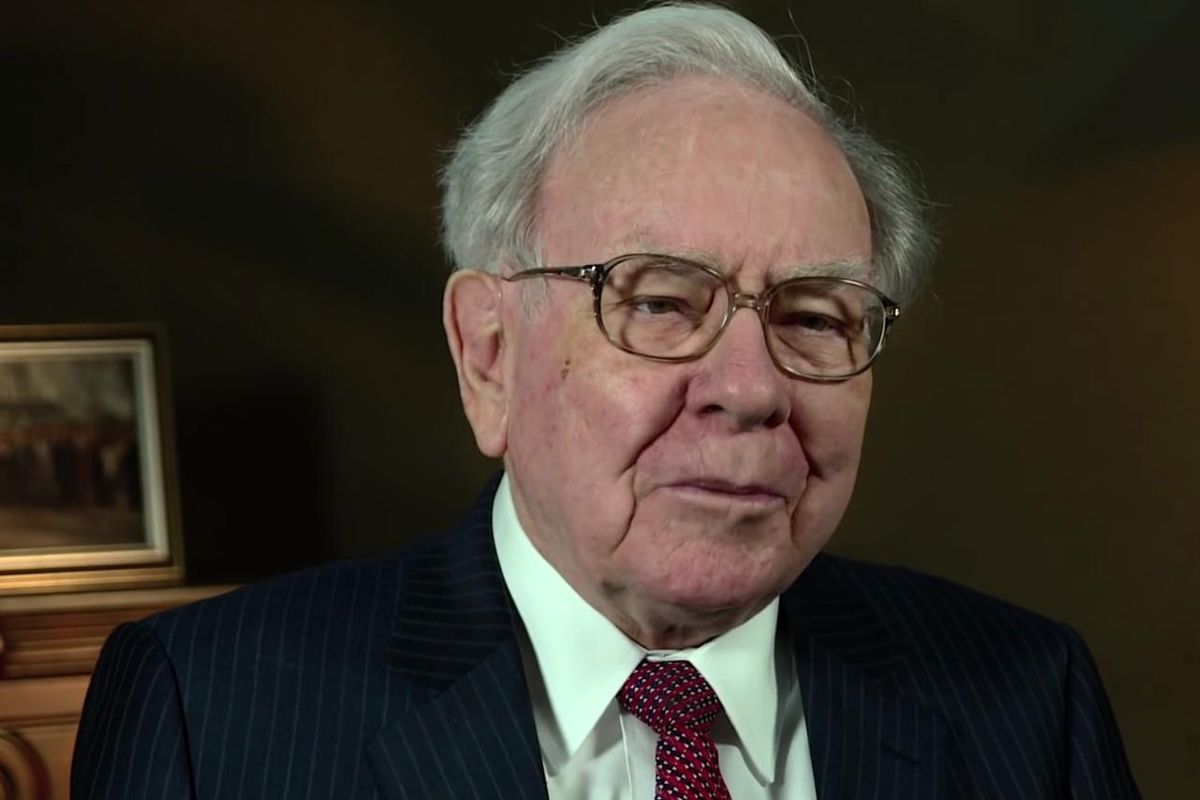Businesses can succeed while still being ethical—just ask Warren Buffett
Buffett always considers 6 factors before making a business decision. And none of them have to do with making money.

Warren Buffett speaking at the 2015 Select USA Investment Summit.
Warren Buffett isn't just rich. He's known for being ethical, straightforward, and wise. And also generous. Not just with his money but with his ideas.
Buffett straight up spelled out how he makes decisions on how to invest in and acquire businesses in a public letter sent to his shareholders. To be clear: His instincts and insights are what have made him such a rich man. And that's what he's sharing so openly with the world.
These are the six factors Warren Buffett says he considers when he's making big business decisions.
Maybe they could help the rest of us think through some tough decisions in our own lives? Let's see.
Maybe you, too, are investing billions of dollars. Or, uh, maybe not. But the day-to-day choices you have to make about life could be just as tough — and important. So let's see how his lessons could apply:
1. It's gotta be a big choice and a big win.
Buffett says he prefers to acquire "large purchases (at least $75 million of pre-tax earnings unless the business will fit into one of our existing units)." Aka, go big, go bold. Not everything has to be huge, but in tough times, sometimes doing the big, scary thing is how you reap the big, amazing reward.
2. The decision has to create value for you consistently and currently.
None of this "it'll pay off in the distant future" or "it just needs some elbow grease" stuff. Whatever you're choosing, make sure it's valuable and has concrete, real-life impact. Or, as Buffett says, the acquisition must have "demonstrated consistent earning power (future projections are of no interest to us, nor are 'turnaround' situations)."
 File:President Barack Obama and Warren Buffett in the Oval Office ...commons.wikimedia.org
File:President Barack Obama and Warren Buffett in the Oval Office ...commons.wikimedia.org3. The decision will benefit everyone who's invested in it, and it won't leave anyone hanging.
Buffett wants "businesses earning good returns on equity while employing little or no debt," aka no one who's put time/effort/money/love into said life choice (or business move) will come out at the end with less than what they started with. Makes sense, right? Basically, don't screw people over with the choices you make. Have some heart and fairness.
4. Everything necessary for success should already be in place.
Buffett mentions that there must be "management in place" and that his company "can't supply it." Invest time and energy in things that are solid and have demonstrated reliability. That is, "don't build the ship while you sail it." Why? According to Buffett's logic, when making huge decisions, if the part that keeps makes the end result of your decision sustainable is already there, that's a very good sign.
5. The decision may be hard, but the terms should be simple.
Buffett wants simple businesses, saying — in his awesomely straightforward way — "if there's lots of technology, we won't understand it." Life isn't always simple and there's certainly a time for complexity, but the lesson here is a good one: If you're making a huge choice, don't overcomplicate it.
 man sitting on mountain cliff facing white clouds rising one hand at golden hourPhoto by Ian Stauffer on Unsplash
man sitting on mountain cliff facing white clouds rising one hand at golden hourPhoto by Ian Stauffer on Unsplash6. The options are clear and available.
Buffett refers to this availability, basically saying that the company has to have a price on it already and that his firm doesn't "want to waste our time or that of the seller by talking, even preliminarily, about a transaction when price is unknown." I take this to mean that the choice is a clear action. No negotiations necessary.
Bingo.
Now I'm not saying that this well-to-do investor has all the answers just because he has all the money, and I know it's a little out there to think of these investment acquisition tips as something you can apply to your own, non-billionaire life. But think about it. Fearlessness? Fairness? Preparation? These are some helpful themes we could all probably take a few lessons from.
So next time you're making a big decision, think about them. In a world where financial literacy isn't exactly the norm, looking at how financial greats make their decisions could be an interesting thing to try. Who knows? It might help you.
- Bill Gates donates unprecedented $20 billion to help 'significant suffering' ›
- Here's a thread that will bust the myth of the 'self-made' billionaire ... ›
- Warren Buffett nailed why poverty in America 'does not make sense.' ›
- Billionaire Warren Buffett shares the one simple investment 'formula' to make everyday people richer - Upworthy ›






 a man sitting at a desk with his head on his arms Photo by
a man sitting at a desk with his head on his arms Photo by  Can a warm cup of tea help you sleep better? If you believe it, then yes. Photo by
Can a warm cup of tea help you sleep better? If you believe it, then yes. Photo by 
 A happy Gen X couple have patience for younger generations, like Gen Z.
A happy Gen X couple have patience for younger generations, like Gen Z.
 A group of friends chatting wearing masks.via
A group of friends chatting wearing masks.via 
 Some stray cats wander from home to home like a drifter.
Some stray cats wander from home to home like a drifter.  Stray cats should be spayed and neutered.
Stray cats should be spayed and neutered. 
 A woman getting her nails painted.via
A woman getting her nails painted.via
Curvy-and-proud newscaster takes the wildest viewer comments turns them into pure comedy gold